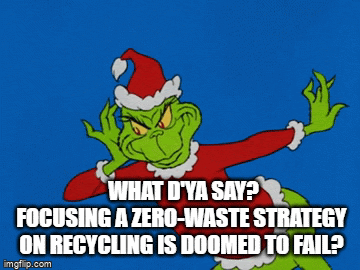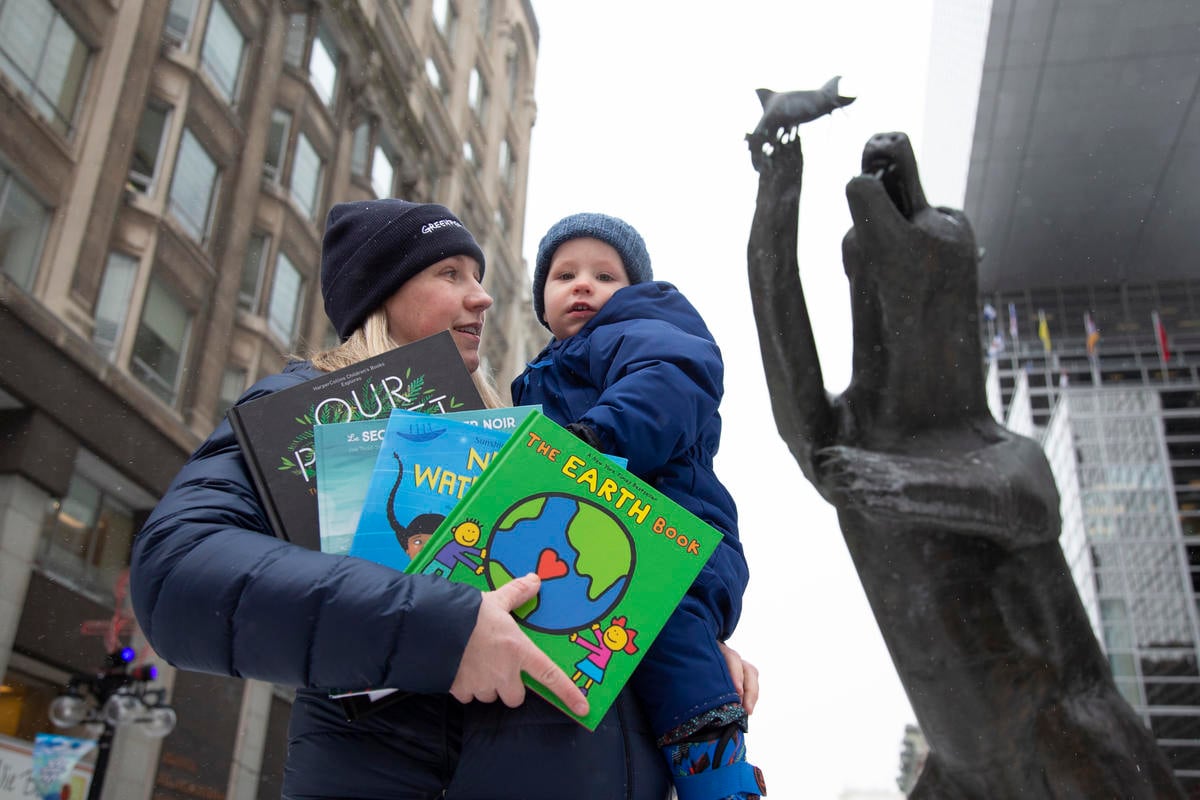
Hand up if you’re still confused about whether certain types of plastic packaging can be put in your blue bin! You are not alone. And this just in…..after analyzing the top recycling companies across the country, a new Greenpeace Canada investigation has revealed that the biggest recycling facilities in Canada aren’t equipped to process it all anyway. They can only process 17% of the total plastic waste produced each year — 17%! Despite what we’ve been told (and sold by companies), plastic recycling … really isn’t a thing.
So as the holiday season ramps up, and with it the annual increase in waste around the corner, what will happen to all the plastic waste we keep generating?
Well, according to our new report, unless the federal government gets serious about Rethinking the way we get our daily necessities and other goods — and unless it starts focusing on Reduction and Reuse, instead of banking on the infamous R (recycling) to solve our plastic waste and pollution problems — it’s not going to be good….for our climate, wildlife, ecosystems, or communities, especially frontline and Indigenous communities living next to plastic production sites and adjacent to pollution hubs.
It’s time the federal government stops leaving the public holding the bag on industry pollution. Amiright?!
For a deep dive into the stark numbers and our full suite of recommendations on how the federal government can amend its current plan, like expanding the current single-use plastic ban list(!), check out the full report here.
Here are some more of the report’s key findings worth paying attention to.
- British Columbia is known for making plastic producers pay for the collection and recycling of various types of plastics, which (in theory) should improve recycling rates. In reality, even this better-case scenario is failing, with BC losing more than half its plastic waste to landfills, and an additional 30% turning plastic into fuel, annually.
- Industry and government talk a lot about “advanced recycling” technologies and how they are an important piece of a circular economy. These alleged advanced technologies are known as chemical recycling (breaking plastics down into their smaller chemical components). They have their own set of problems. The technologies that could turn plastic waste into new plastic are in their infancy, and would likely take more years to scale than we have to meet the 2030 zero waste commitment. As it stands, our best estimate for plastic-to-plastic chemical recycling capacity is 1,400 tonnes … but Canada produces 3.2 million tonnes of plastic waste (based on last available data in 2016). ¯_(ツ)_/¯.
- The climate impacts of the federal government’s commitment to plastic production and “recycling” have not been transparently accounted for in the federal government’s new plans. From production to disposal, especially in chemical plastic-to-fuel processes and waste-to-energy (incineration), plastic pollutes and emits greenhouse gases. This undermines federal commitments to a low carbon economy, considering that, globally, 10-13% percent of the remaining carbon budget could be eaten up by plastics!
- So, it’s clear that the federal government’s proposed approach to plastic waste and pollution further entrenches us in a linear and fossil fuel dependent system that prioritizes industry, not people. A focus on improving recycling and ensuring plastic as a mainstay in the economy fails to meet basic principles of the zero waste hierarchy, a truly circular economy, and environmental justice.
- Greenpeace found $334 million in spending on virgin plastics producers since 2017, plus millions more in spending on the plastic industry following the onset of the pandemic. Federal and provincial funding sources continue to spend on virgin plastics manufacturing (despite the federal government promising to eliminate certain fossil fuel subsidies).
There’s no such thing as a circular plastic economy. We can’t keep relying on the fairytale of plastic recycling. Greenpeace is calling for the federal government to make a truly zero-waste, reuse-centred economy part of its covid-19 recovery plans to create jobs and build back better.
Are you feeling frustrated by listening to the plastic industry push their plastic agenda, while hearing the federal government fail to turn off the plastic tap? Ask the government for a strong zero-waste strategy based on reduce and reuse models!



